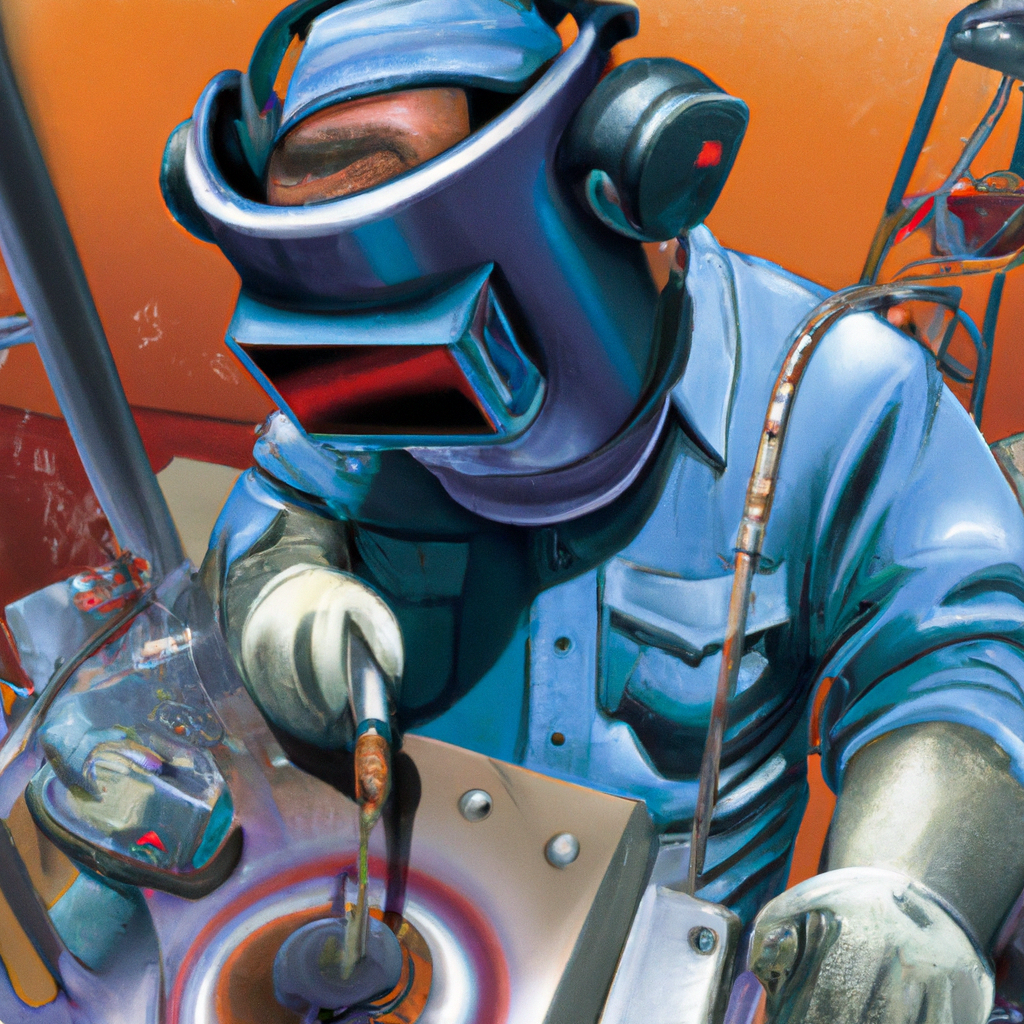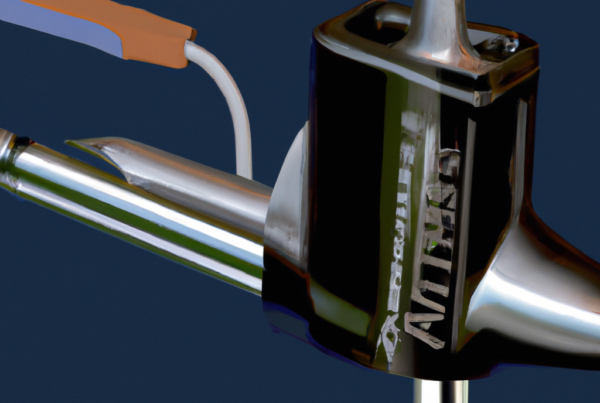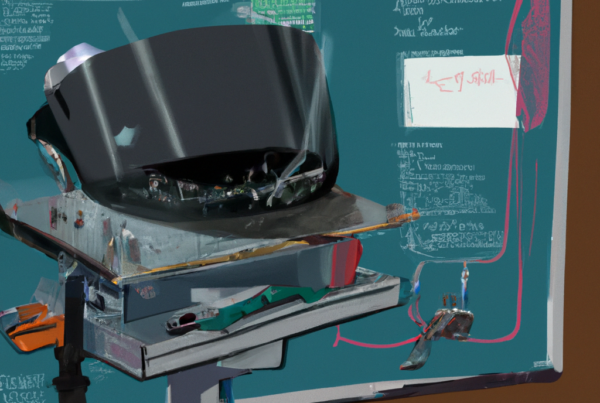Rig welders are the backbone of the industrial and construction industry. They are highly skilled professionals who are responsible for welding and repairing the pipes, tanks and other essential structures used in the oil and gas industry, as well as other industrial and construction projects. Rig welders have the unique ability to work in a variety of environments and with a variety of materials. They use a wide range of tools and techniques to ensure the highest quality welds, and must be familiar with safety protocols to ensure the safety of themselves and others. Rig welders are a vital part of any industrial or construction project and their skills are invaluable.

What is a Rig Welder?
A rig welder is a specialized type of welder who works in the oil and gas industry. Rig welders are responsible for the fabrication and repair of pipelines, tanks, and other structures used in the drilling and refining of oil and gas. They must be knowledgeable in a wide variety of welding techniques to ensure that the structures are strong and safe. Rig welders require specialized skills and knowledge to perform their job safely and efficiently.
The duties of a rig welder include:
- Reading and interpreting blueprints and plans for various welding tasks
- Setting up and operating welding equipment
- Inspecting and testing welds for strength and durability
- Operating hoists and cranes to lift and move large objects
- Cleaning and preparing surfaces to be welded
- Using torches and other tools to cut and shape materials
- Inspecting equipment and machinery for wear and tear
- Maintaining records and logs of all welding tasks
Rig welders must be comfortable working in a variety of environments, including outdoors in inclement weather, and in confined spaces. They must also be able to lift and move heavy objects and have excellent hand-eye coordination. Rig welders must be able to follow safety protocols and be aware of their surroundings at all times. It is important for rig welders to have a strong knowledge of welding techniques and safety protocols.
What Training is Required to Become a Rig Welder?
Rig welders are responsible for welding and fabricating metal components in a variety of industrial settings. They must have the skills and knowledge to safely and effectively weld components in all positions. To become a rig welder, individuals must obtain the necessary training and certifications.
The following training is typically required to become a rig welder:
- Welding coursework and certification in shielded metal arc welding (SMAW), gas metal arc welding (GMAW), and flux-cored arc welding (FCAW).
- Industrial safety courses.
- Courses on welding equipment and tools.
- Hands-on welding experience.
- Blueprint reading and math courses.
In addition to welding certifications, rig welders must have a working knowledge of mechanical components and be able to interpret blueprints and diagrams. Some employers may also require additional certifications and safety training. Rig welders must be able to work in all positions and be able to lift heavy objects.
What Skills are Needed to Be a Rig Welder?
Rig welders are responsible for welding components in oil and gas drilling rigs. To be successful in this profession, welders need to have a range of skills.
- Strong knowledge of welding processes, including flux-core arc welding, gas metal arc welding, and oxy-fuel welding.
- Excellent manual dexterity and eye-hand coordination.
- Knowledge of welding machines and tools.
- Understanding of the principles of welding metallurgy.
- Ability to read and interpret technical drawings.
- Good spatial awareness.
- Attention to detail.
- Ability to work in extreme temperatures and confined spaces.
- Good physical fitness.
- Safety-conscious attitude.
Rig welders must also have a good understanding of the materials they are welding, as well as the ability to work on their own with minimal supervision. Rig welders must be able to troubleshoot and repair welding equipment, and they must be willing to travel to remote locations to perform their duties.
What is the Job Description of a Rig Welder?
A rig welder is responsible for welding metal components together to construct or repair structures or vehicles. The rig welder must be familiar with the different welding techniques and must be able to read and interpret blueprints and technical drawings. Here is a list of the primary responsibilities of a rig welder:
- Operating welding equipment to join, fabricate, and repair metal components.
- Reading and interpreting blueprints and technical drawings.
- Preparing and selecting the correct welding tools.
- Inspecting and testing welded joints for accuracy.
- Maintaining a clean and safe working environment.
Rig welders must also be familiar with various types of welding, such as gas tungsten arc welding, flux-cored arc welding, and shielded metal arc welding. They must also be knowledgeable about the proper use of safety equipment and practice safe welding techniques.
What Safety Precautions do Rig Welders Take?
Rig welders are responsible for a variety of welding tasks in industrial, commercial, and residential settings. To ensure the safety of themselves and those around them, rig welders take a variety of precautions. These include:
- Using protective gear, such as eye protection, gloves, and flame-resistant clothing
- Working in a well-ventilated area to minimize the risk of inhaling fumes
- Inspecting all equipment and materials prior to use to ensure they are in good working condition
- Following all safety protocols and guidelines set by the employer
- Keeping a fire extinguisher close by in case of an emergency
Rig welders also take additional precautions to minimize the risk of injury or illness. These include:
- Staying informed of any changes in welding safety regulations
- Regularly cleaning and maintaining their welding equipment
- Avoiding contact with metal shavings and other debris
- Taking frequent breaks to rest and stay alert
- Ensuring their work area is free of clutter and hazards
By following these safety precautions, rig welders can work safely and efficiently in a variety of settings.
What is the Average Salary of a Rig Welder?
Rig welders are specialized welders who work in a variety of environments, ranging from outdoor locations to commercial and industrial sites. They use welding and cutting tools to join metal components together and to form structures that can be used in a range of industries. Rig welders must be highly skilled and knowledgeable in order to complete their tasks safely and accurately. The average salary for a rig welder is around $45,000-$60,000 per year.
What does a Rig Welder do?
- Read and interpret blueprints, drawings, and welding procedures
- Set up welding equipment, including torches, regulators, and other materials
- Perform welding and cutting processes for a variety of metals, such as steel, aluminum, and stainless steel
- Operate welding and cutting machines, such as arc welders, TIG welders, and plasma cutters
- Perform repairs, maintenance, and inspections of welding equipment
- Perform welding tests and evaluate results to meet quality standards
Rig welders must be able to think critically and make decisions quickly. They must be comfortable working in hazardous environments and able to follow safety guidelines. Rig welders must also be able to work independently and in teams. They must be able to work with a variety of tools and materials, and must be knowledgeable in different welding techniques.
What Industries Utilize Rig Welders?
Rig welders are employed in a variety of industrial settings, performing a variety of welding tasks in order to join materials together. They are often found in industries such as:
- Shipbuilding
- Manufacturing
- Heavy Equipment Repair
- Oil and Gas
- Construction
Rig welders are responsible for setting up, operating, and maintaining welding equipment to join pieces of metal together. This includes using techniques such as soldering, brazing, and arc welding. They may also be required to use a variety of tools and equipment to prepare metal surfaces, such as grinders, drills, and band saws. Rig welders also have to read and interpret blueprints in order to determine the exact specifications and requirements of the welds they are responsible for creating.
What is the Job Outlook for Rig Welders?
A rig welder is responsible for welding components on rigs, or drilling platforms, used in the oil and gas industry. Rig welders typically work outdoors, often in hazardous conditions, and must be proficient in a variety of welding techniques. They must also be able to read and interpret blueprints, and have a strong understanding of safety protocols.
The job outlook for rig welders is good. According to the U.S. Bureau of Labor Statistics, employment of welders, cutters, solderers, and brazers is projected to grow 4 percent from 2019 to 2029, about as fast as the average for all occupations. Job opportunities should be best for welders who have completed postsecondary welding programs and possess the most up-to-date skills.
Welders who specialize in working on rigs should see good job prospects, as the oil and gas industry is expected to experience growth in the coming years. Rig welders can expect competitive salaries and benefits, and many employers offer bonuses for safety and quality performance. Rig welders may also be eligible for overtime pay, depending on their employer’s policies.
What are the Benefits of Being a Rig Welder?
Rig welders are highly skilled professionals who work in the oil and gas industry. They perform welding and other related services on oil and gas rigs, pipelines, and other related infrastructure. There are many benefits to working as a rig welder, including:
- Competitive Pay – Rig welders can earn a high wage, often up to $50 per hour or more.
- Flexible Hours – Rig welders can often work flexible hours or on a part-time basis.
- Career Advancement – Rig welders can move up in the industry quickly with the right experience and training.
- Work Environment – Rig welders typically work outdoors, often in remote locations, which can be an exciting and rewarding experience.
- Job Security – With the continued growth of the oil and gas industry, job security is generally very good for rig welders.
These are just a few of the benefits of working as a rig welder. With the right skills and experience, a rig welder can have a rewarding and lucrative career in the oil and gas industry.
What are Some Challenges Faced by Rig Welders?
Rig welders work in a variety of industries, including oil and gas, construction, and manufacturing, and are responsible for welding components together to create a structure or piece of machinery. However, they face many challenges on the job, including:
- Working in hazardous environments – Rig welders often work in hazardous environments, such as construction sites, which can be hazardous due to heavy equipment, flammable liquids, and other dangers.
- Carrying heavy loads – Rig welders often need to carry heavy loads, such as welding tools and equipment, which can be physically demanding.
- Working in extreme temperatures – Rig welders may need to work in extreme temperatures, such as in hot or cold climates, which can be uncomfortable.
- Working in confined spaces – Rig welders often need to work in confined spaces, such as within pipelines, which can be difficult and dangerous.
- Handling heavy machinery – Rig welders may need to handle heavy machinery, such as cranes and hoists, which can be dangerous if not handled properly.
These are just a few of the challenges that rig welders face on the job. To be successful, they must be physically fit, have excellent problem-solving skills, and be able to work in hazardous environments.



